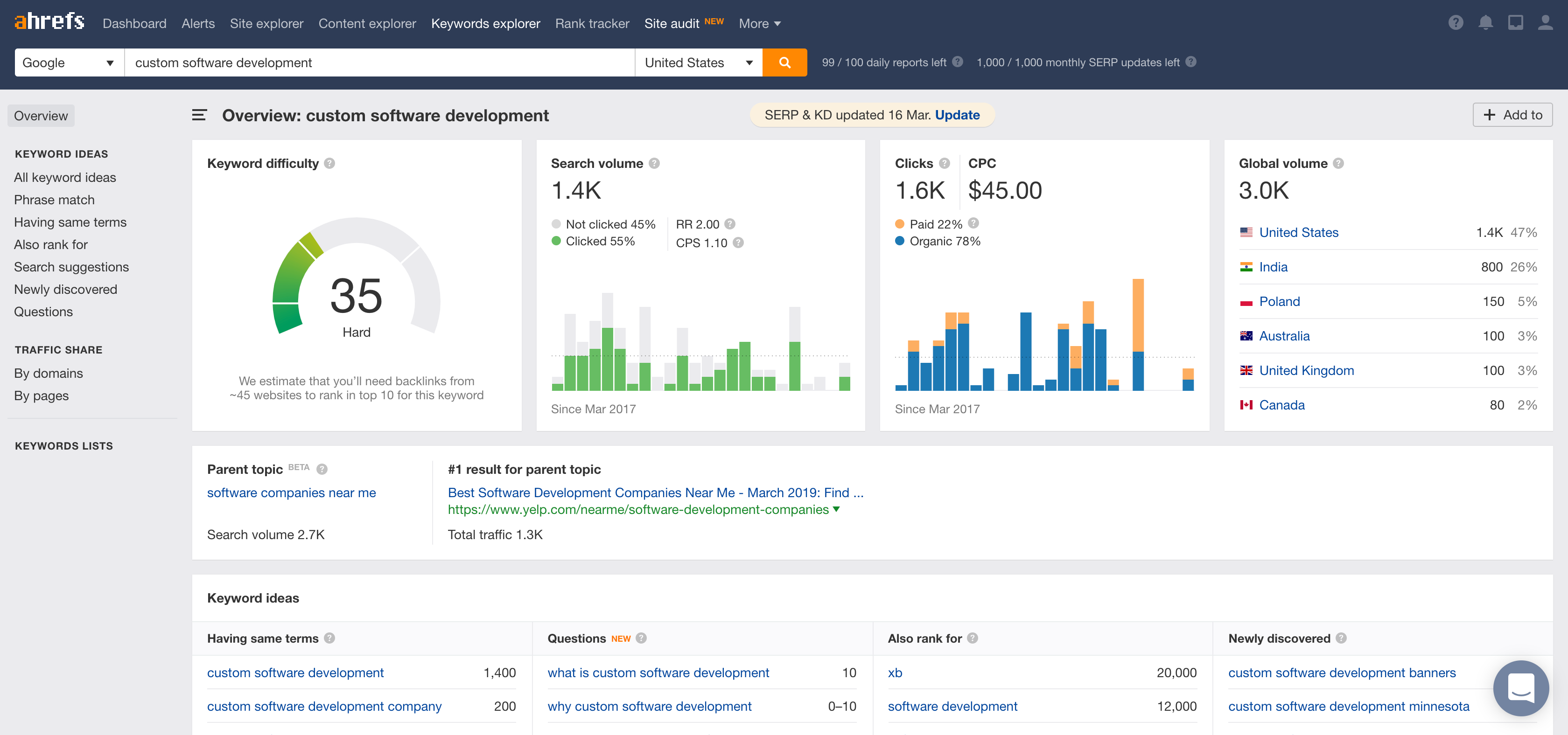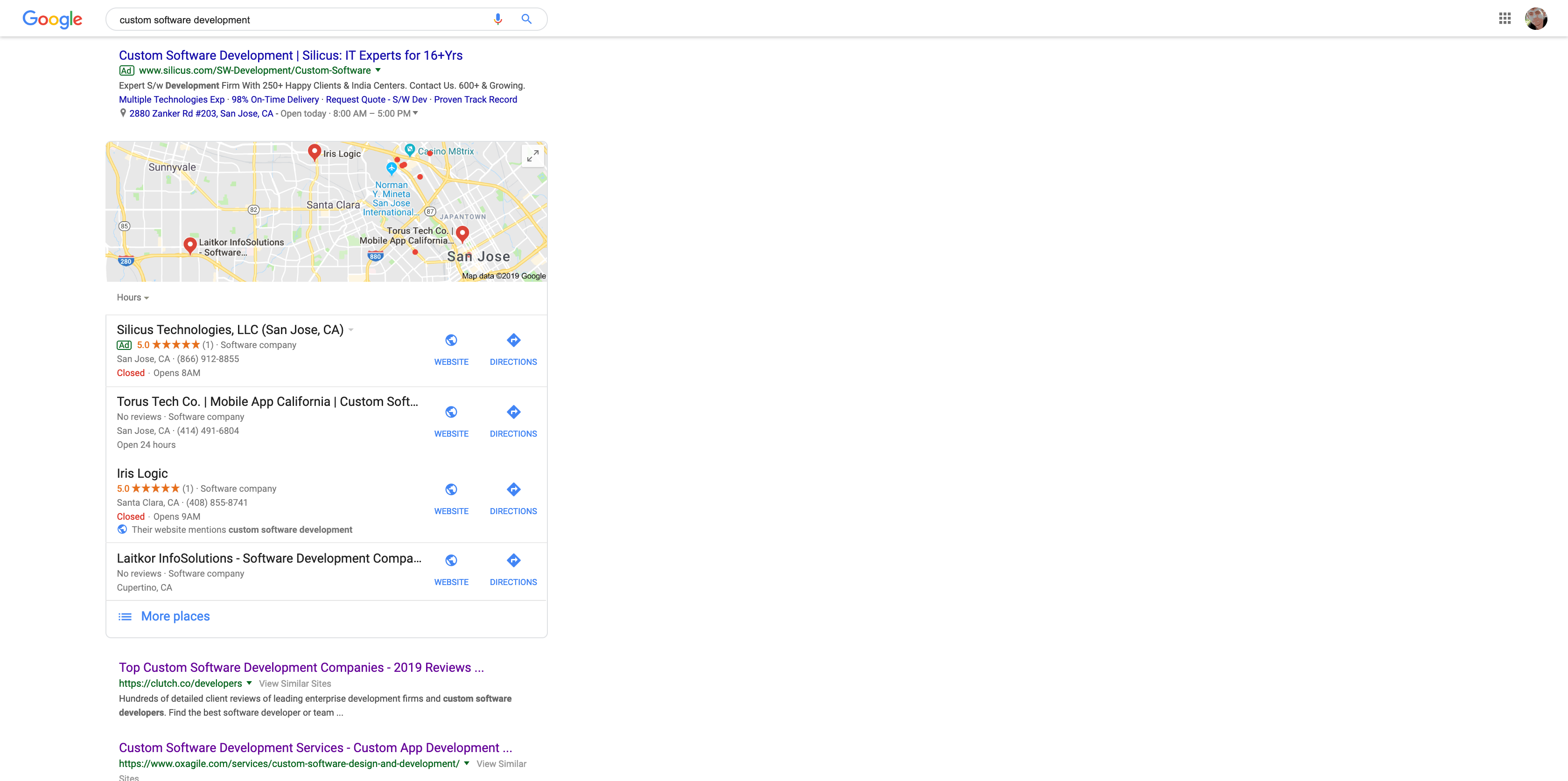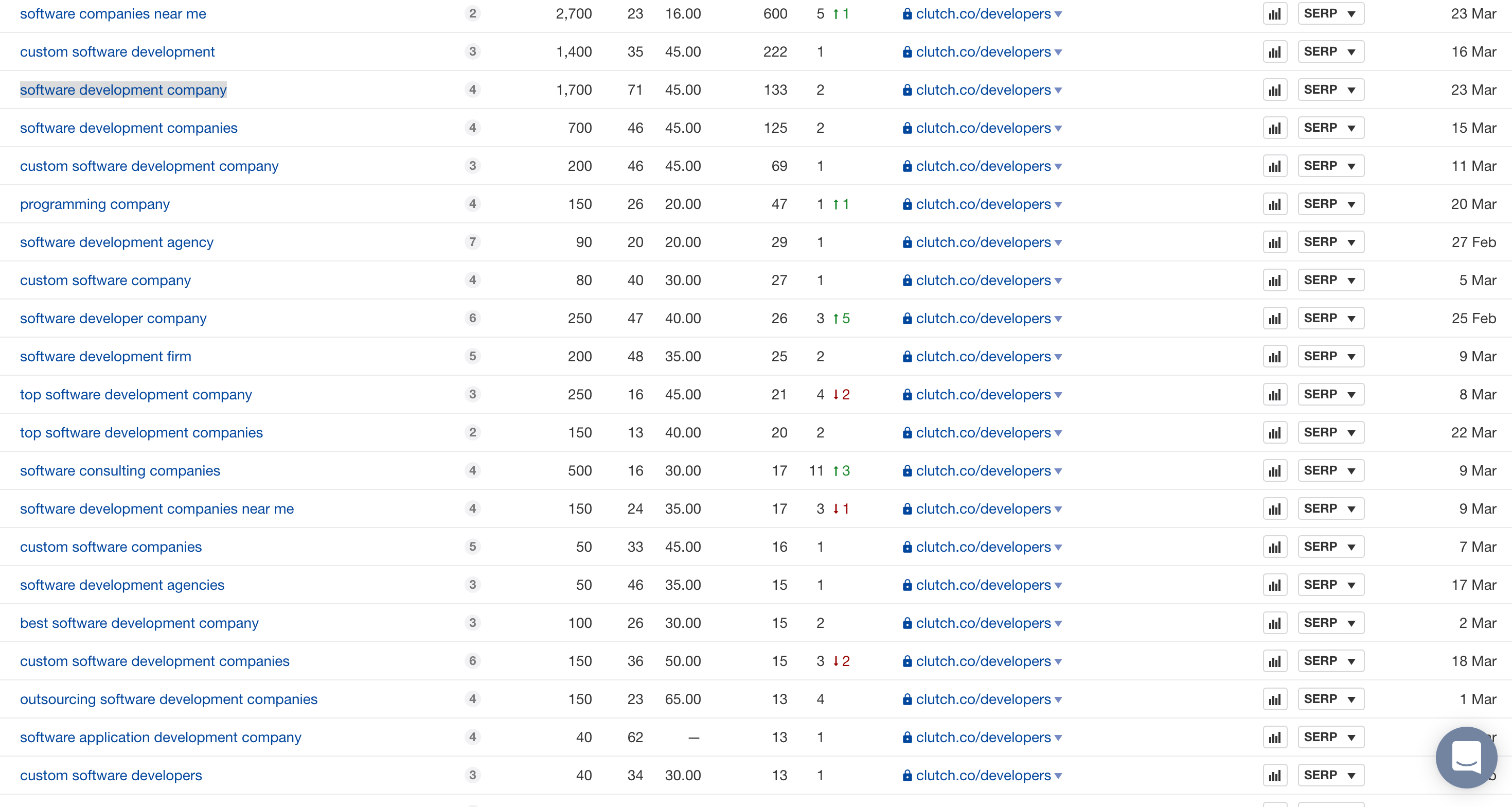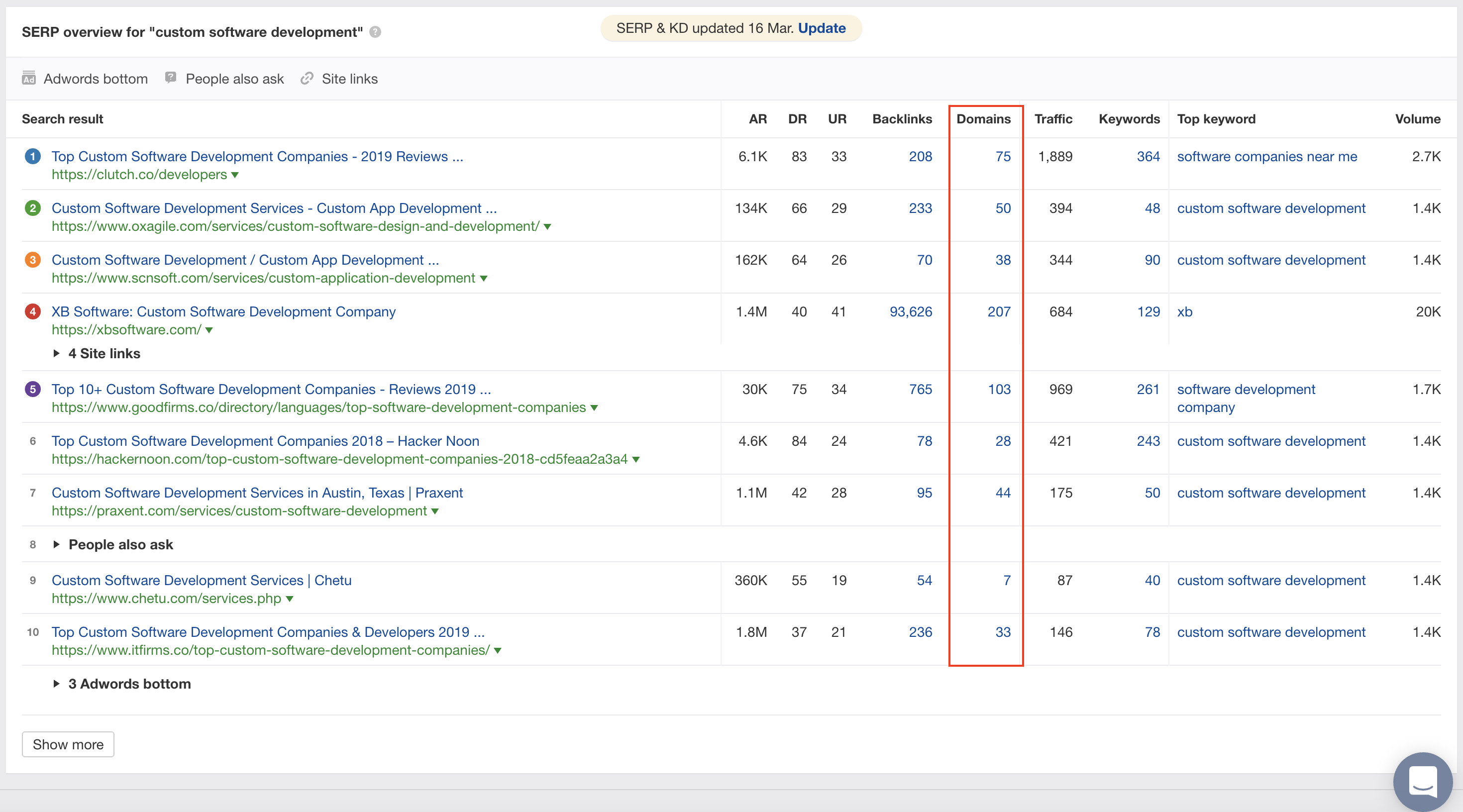Any marketing expert in a company engaged in development, like itrate.co, knows that the cost of PPC advertising is quite high for the niche. The average PPC cost is $40-$60, and with companies like Microsoft, Oracle, or IBM, that cost can easily get over $200.
Here’s simple math – let’s say your company develops custom software. If you use the Ahrefs tool, you’ll be able to see the frequency of such a request, that averages 1,400 searches per month.
It’s also noteworthy that the PPC cost of such a request in PPC advertising starts from $45. Considering you are going to have more than 30 clicks and multiplying this by the cost we get $1200 dollars … for one phrase … for just one day.
Such a budget is too heavy to lift for a young and growing company. And we’re not just talking about young companies – even quite a large agency like Clutch.co prefers organic results to PPC advertising.
More than that, any marketing expert understands that the user is looking for information of interest in many ways and may also use different refine queries. Here is a quick example of user request variations in the custom software development niche through Clutch.co:
In fact, the number of such phrases is much bigger. Specifically, in this case, there are more than 300. Now imagine the average PPC cost on such request is $40. The budget for advertising is getting sky-high!
How to grow organic traffic that provides conversion in the development niche?
Two approaches are applicable: link promotion and feature stories promotion.
Approach 1: Link Building
It’s not a secret that links are essential for promotion in Google, and there’s enough evidence for an article. Before engaging in external SEO, you need to optimize a site from the inside.
Top internal site optimization factors:
- Website optimization for mobile devices
- Quick server response
- Download speed before interacting with content
- Image optimization
These are basic steps to make savings for website promotion on necessary requests.
The most reasonable question arises – how many links do you need to get to the top? My answer is, that depends. Let’s get back to the custom software development case and find out how many links are needed to get the page to the top.
In the screenshot above, note the column ‘Domains’. That’s the number of sites that refer to pages in the top 10 Google search results. Judging by the pages in the top 3, we can say that the minimum value of websites to achieve this top will be a bit over 50. Conservative estimates suggest that one article with a link to your page on a third-party resource may cost from $200. Multiplying this by the minimum amount required for such a page, we get the minimum budget of $10,000. We should consider it’s much cheaper than PPC advertising on Google, but it still can’t be called a “budget” promotion. Is there a way to get leads in a highly competitive niche cheaper? Of course, there is – by writing feature stories for your blog.
Approach 2: Writing feature stories for your blog
If you list all the advantages of this approach, then the article will stretch into several large sections, so I will only provide the most significant ones:
- A more careful traffic study.
The whole point of Approach 1 is to collect as many massive requests for a single page as possible and try to move it to Google. But with such an approach, the quality of the traffic study deteriorates markedly, which is reflected in conversions. For one, development time, implementation examples, cost, and other things may differ between the development of CRM and ERP systems. Given this, logic dictates that two separate pages can reveal a company’s expertise in developing such products in greater detail.
- An easier getting of high positions with better disclosure.
As an example, let’s go back to the CRM and ERP example. If you look at the search results for “custom CRM software development” query, you can see that the results contain only pages that clearly answer the user’s question related to CRM. Another remarkable fact is that the results do not contain any of those pages that have received a large number of links, which is proof of the company’s blogging approach accuracy.
- Much higher coverage of niche queries.
80% of all Google requests can’t be seen in any available tool, not even in Google Webmaster, but they drive the majority of traffic to the website. As practice shows, such stories collect a large number of low-frequency queries and allow you to drive more traffic to a website in general.
Depending on the scope of services you provide, a number of articles in a company’s blog can reach 100-150.
How to choose the right blog topic?
There are two key factors when choosing blog topics.
- The first one, if you already have a small number of topics in your blog, check which pages best lead customers, analyze keywords, and try to find similar ones. Let’s say you have a topic on “Custom CRM Software” that drives more traffic than others. Good fresh blog topics for writing articles will be:
“Custom CRM Solutions” – describe custom solutions for different businesses.
“Custom CRM Developers” – write about how many developers are needed and for what size of a project, also what skills the involved developers should have.
“Custom CRM Systems” – cite an example of box solutions on the market and argue in favor of the advantage of a custom solution development instead of purchasing off-the-shelf.
“Custom Built CRM” – provide examples of the systems developed, briefly explain each of their features, and argue in favor of their usefulness to the client.
“Custom CRM Development” – describe the process of developing a project, stages, and what affects the price of developing such a solution (without any numbers).
- The second factor is the selection of topics for a blog based on the services you provide, e.g. if you are developing for niche insurance, then the following topics are quite relevant: “Custom Insurance Software”, “Insurance Software Solutions”, “Insurance Agency Software”, “Insurance Management Software”, etc.
The cost of promotion by writing feature stories for a blog is noticeably lower than link promotion cost. As for the effect, it won’t be a problem to achieve a great result within a year.























